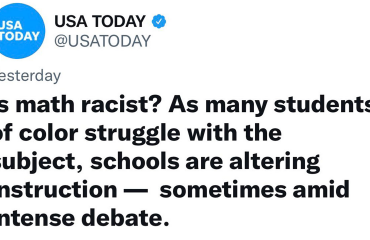Carlos Tejada, Deputy Asia Editor for The New York Times, Dies at 49 – The New York Times
Advertisement
Supported by
He was an editor in Asia for 13 years, including with The Wall Street Journal. One colleague said he had embodied the phrase, “Edit ferociously and with joy.”
Send any friend a story
As a subscriber, you have 10 gift articles to give each month. Anyone can read what you share.
By Richard Sandomir
Carlos Tejada, the deputy Asia editor of The New York Times, who helped shape coverage of the global Covid-19 crisis in 2021 that won a Pulitzer Prize, died on Friday at a hospital in Seoul. He was 49.
His wife, Nora Tejada, said the cause was a heart attack.
Mr. Tejada was the China news editor for The Wall Street Journal when The Times hired him in 2016 to be its Asia business editor. He was named deputy Asia editor last year, originally based in Hong Kong.
That year he contributed to The Times’s Pulitzer-winning coverage of the Covid-19 crisis, editing an article about how China had censored online news and opinion about the coronavirus early in the pandemic. The Pulitzer board cited it among others in awarding The Times the prize for public service.
Mr. Tejada was also part of an editing team on a series of articles, about China’s repression of Muslims, that was a finalist for the Pulitzer in international reporting in 2020. And he helped edit The Times’s global coverage of the pandemic that was a finalist for the international reporting prize this year.
Mr. Tejada, who was deputy to Adrienne Carter, the Asia editor, was one of the first Times staff members to move from Hong Kong to Seoul in 2020 after pressure from the Chinese government, which had passed a sweeping national security law, made it important to extend and diversify the Asia newsroom’s operation.
“He and Adrienne were partners in keeping it all together,” Ellen Pollock, The Times’s business editor, said in a telephone interview. “It was an incredibly fraught period.”
Mr. Tejada was known for his deft hand as an articles editor. “He could make even the most complicated story sing,” Ms. Carter said in an email. “He would regularly print out long, gnarly 4,000-word drafts, taping each page together vertically. It could stretch for seven or eight feet. He would then masterfully deconstruct and reconstruct the story, to help his reporters work through their next version.”
Li Yuan, a Times reporter who first worked with Mr. Tejada at The Journal, wrote in an email that he had been committed to immersing himself in Chinese life, including mastering the language. “Every Monday morning I could hear Carlos speaking Mandarin with his online tutor in the office,” she wrote.
She recalled a trip to the southwestern province of Guizhou in 2009 in which he shared authentic Chinese experiences, like riding on a country road in a taxi without brakes and getting stuck in traffic for hours on a one-lane road because two drivers couldn’t agree on who should back out first.
“Carlos always pushed me and other journalists to do more stories that showed the human side of China,” Ms. Yuan wrote. “He wanted the world to understand China wasn’t just about an authoritarian government.”
Carlos Ramon Tejada was born on Dec. 7, 1972, in Rochester, N.H. His mother, Carlene (Richardson) Tejada, taught English as a second language and is a former magazine editor; his father, Juan, who is from El Salvador, owns an acupuncture clinic in Tucson, Ariz.
Mr. Tejada graduated from the University of Kansas with a bachelor’s degree in journalism in 1995 and was hired by The Journal as a reporter in Dallas, where he covered real estate and other subjects, some of them eccentric. One article was about a Kansas town’s attempt to build the world’s largest Yuletide goat.
In 2001, after being transferred to The Journal’s headquarters in New York, he wrote about workplace issues in the Work Week column; he became a news editor in 2003 and five years later moved to Hong Kong as The Journal’s deputy bureau chief. He was named China news editor, working from Beijing, in 2011.
“He came from the old school in the sense that he was obsessive about accuracy, clarity and fairness,” said Patrick Barta, a former reporter for The Journal who is now its Asia enterprise editor. “But he mixed this with so much warmth and humanity that reporters always enjoyed working with him.”
In addition to his parents and his wife, a photographer (she was Nora Sommers when they married), Mr. Tejada is survived by a daughter, Gianna; a son, Marco; a sister, Sara Tejada; and two half sisters, Marlene Ponce and Isabel Harrison.
Among his colleagues he was known for his infectious laugh and a voracious capacity for work.
“Carlos was the true face of the mantra, ‘Edit ferociously and with joy,’” Yonette Joseph, an international news editor in Seoul, wrote in an email. She added, “And he reverberated with an energy that made me think he knew a secret that many people take a lifetime to figure out.”
Advertisement



